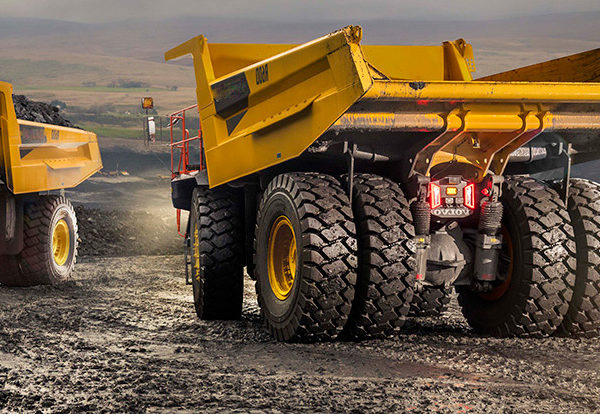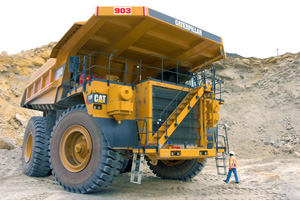

The construction and civil industries are evolving fast, and the key to standing out in 2025 is no longer just about strength or experience. It’s about skill. Precision. And knowing your way around serious machinery.
Welcome to our five-part blog series: a practical and inspiring journey into the world of civil machinery courses and the real-world careers they support. Whether you’re fresh out of school, mid-career and looking for a pivot, or already on-site and ready to upskill, this series is designed for you.
Here’s what we’ll cover:
- Why Civil Machinery Skills Are the New Blueprint for Career Growth in 2025 – We kick things off with a look at the booming demand for operators and why machinery skills now outrank traditional quals in many roles.
- Behind the Controls: What a Day in Training Looks Like – Get an insider’s view of hands-on training with full-size, mine-spec equipment on a simulated worksite.
- Ticket to Anywhere: Which Certifications Open the Most Doors? – From dump trucks to dozers, we explore which tickets and licences employers love to see—and how to get them.
- The Career Ladder: Where Machinery Skills Can Take You – We map out the real career progression from entry-level operator to site leader (and the salaries to match).
- How to Choose the Right Civil Machinery Course – With so many options out there, we break down what makes a course worth your time and money, plus where to get nationally recognised training in Queensland.
The Rise of the Machines (Literally)
By 2027, demand for skilled civil machinery operators is projected to rise by over 23%, driven by infrastructure booms, urban development, and increased investment in public works projects across Australia.
Construction sites today look and sound different. The roar of engines, the precision of GPS-controlled dozers, and the smooth coordination of dump trucks and excavators have replaced much of the manual labor of the past. Technology and efficiency now define the worksite, and at the heart of this transformation is one major player: heavy civil machinery.
However, these machines aren’t just making projects run more smoothly; they’re rewriting the rules of career progression. In 2025, civil machinery skills will no longer just a handy bonus. They’re fast becoming a blueprint for anyone looking to rise through the ranks in construction, civil engineering, and mining.
Why Civil Machinery Matters More Than Ever
From billion-dollar highway upgrades to smart city builds, today’s infrastructure projects are bigger, faster, and more technically demanding than ever before. And behind every successful project is a fleet of skilled operators controlling the heavy lifters, dump trucks, loaders, excavators, dozers, and more.
There’s a myth that automation is replacing people on site. In reality, it’s creating a new breed of highly valued operators. Machines are getting smarter, but they still need skilled hands and sharp minds behind the controls. What’s changed is the level of precision and responsibility now required to run them. Operating heavy machinery in 2025 is less about brute force, and more about finesse, coordination, and real-time decision-making.
Civil machinery has become the backbone of modern construction, essential at every phase, from ground prep to final grading. Whether you’re laying pipelines, sculpting roadways, or managing earthworks, there’s a powerful machine (and a trained professional) driving the progress.
Skills That Pay the Bills
If you’re looking for job security, strong pay, and a clear career path, civil machinery skills deliver all three. In fact, operators trained on heavy machinery are among the most sought-after professionals in today’s construction and mining industries.
Here’s what’s on offer in 2025:
- Heavy Equipment Operator: Avg. salary in Australia sits between $85,000–$110,000 per year, with senior roles or FIFO (Fly-In-Fly-Out) positions offering well over $130,000 annually.
- Grader Operator: Precision work commands premium pay, especially on civil infrastructure projects. Wages typically range from $90,000 to $120,000+.
- Site Foreman with machinery competency: Those who combine leadership with hands-on machinery skills can earn $120,000–$150,000, and they’re fast-tracked for project management roles.
Job Growth:
According to national labour forecasts, demand for civil plant operators is growing at over 4% annually, with the strongest surges in Queensland, Western Australia, and major infrastructure corridors in New South Wales and Victoria.
Think Global:
Australia isn’t the only place with a civil construction boom. Skilled operators are in demand across the Middle East, Southeast Asia, and even Canada, particularly for those with recognised machinery tickets and safety certifications. Civil machinery isn’t just a skill, it’s a passport to opportunity.
Machines Are the New Résumé
In today’s job market, employers aren’t just scanning your CV for degrees, they’re looking for certifications that prove you can perform from day one. And in the civil and mining industries, nothing speaks louder than a valid machinery ticket and hands-on experience.
Here’s what gets you noticed:
- Nationally Recognised Tickets – These include qualifications like the RIIMPO338E for rigid haul trucks or RIIMPO320F for excavators, issued by Registered Training Organisations (RTOs) like My Solution Training.
- S11 Induction – Essential for working on Queensland mine sites, this safety ticket is often a non-negotiable in job ads.
- VOC (Verification of Competency) – A must-have for proving you’re still current with modern equipment, especially for contract work or high-risk tasks.
Experience Beats Theory
While degrees offer theoretical grounding, machinery training teaches you how to actually operate on a real site, with real equipment, safety procedures, and communication protocols. It’s this machine fluency that separates job-ready candidates from those still learning the ropes.
Being confident behind the controls of a CAT 730 Moxy or a 20-tonne excavator says more to employers than any line on a résumé ever could.
Time to Get in the Driver’s Seat
Civil machinery isn’t just transforming worksites, it’s transforming careers. From site prep to project management, knowing how to operate the iron at the heart of modern construction gives you a serious edge in a competitive job market.
Whether you’re just starting out or ready to level up, learning how to operate the machines building tomorrow’s world might just build your future too.
Curious what a modern civil machinery course actually looks like?
Stay tuned for Part 2, where we follow someone’s first day behind the controls, from safety briefing to first spin in a 50-tonne truck.

